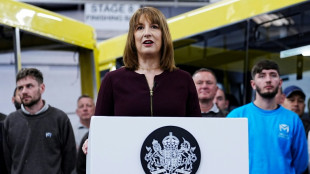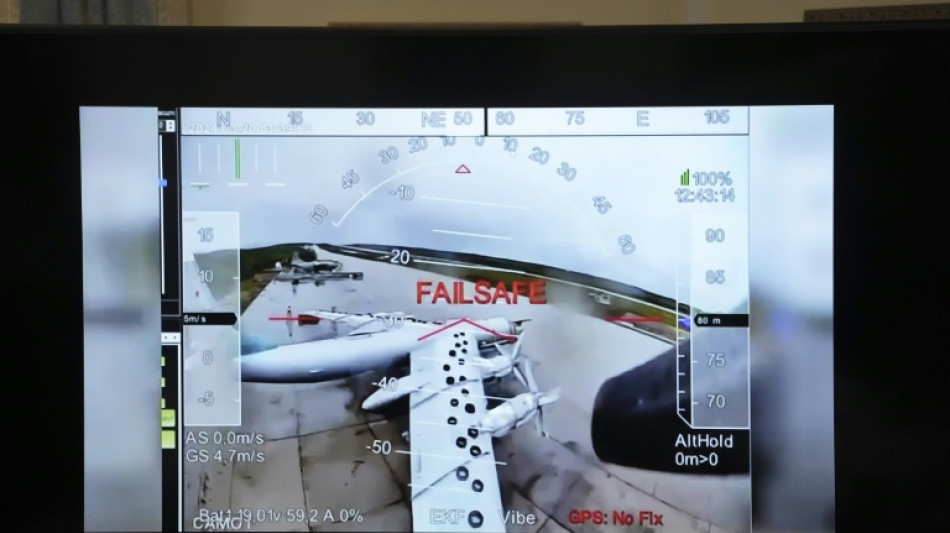
-
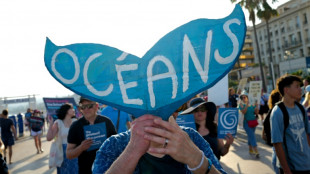 Don't let deep sea become 'wild west', Guterres tells world leaders
Don't let deep sea become 'wild west', Guterres tells world leaders
-
Chivu says goodbye to Parma ahead of Inter Milan move
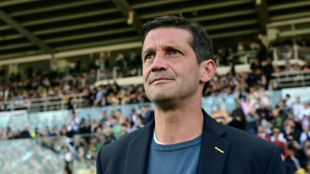
-
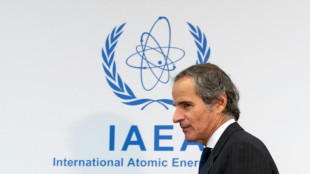 Iran says to submit own nuclear proposal to US soon
Iran says to submit own nuclear proposal to US soon
-
Boisson jumps 296 places in WTA rankings after French Open run
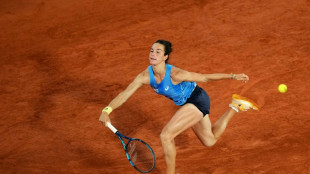
-
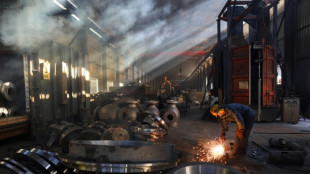 China's exports slow as trade war takes toll
China's exports slow as trade war takes toll
-
Tangled humpback whale sparks rescue mission off Australia
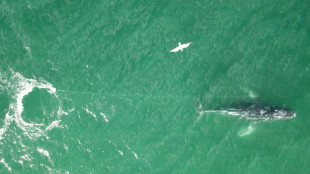
-
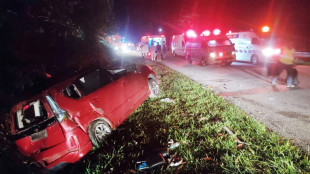 Malaysia bus crash kills at least 15, mostly students
Malaysia bus crash kills at least 15, mostly students
-
Climate change heightens risk of Indian farmer suicides

-
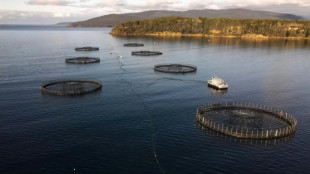 Farmed production of some fish - and seaweed - is soaring
Farmed production of some fish - and seaweed - is soaring
-
Bust attributed to Donatello splits Slovakia

-
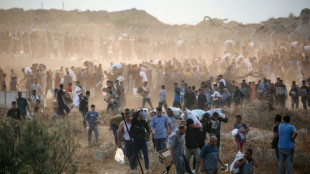 Israel diverts Gaza-bound aid boat carrying Greta Thunberg
Israel diverts Gaza-bound aid boat carrying Greta Thunberg
-
China exports slow as trade war takes toll
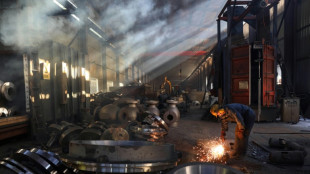
-
 'Maybe Happy Ending' tops Broadway's Tony Awards
'Maybe Happy Ending' tops Broadway's Tony Awards
-
'Flawed' Test Championship reveals world cricket's underlying problems

-
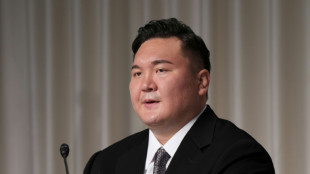 Retired great Hakuho says leaving sumo after bullying scandal
Retired great Hakuho says leaving sumo after bullying scandal
-
Haliburton vows to improve after Thunder defense stifles Pacers
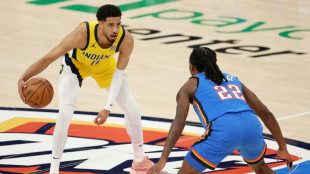
-
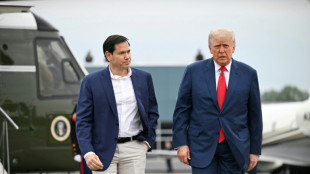 Trump travel ban in effect, citizens from 12 nations barred from US
Trump travel ban in effect, citizens from 12 nations barred from US
-
McIntosh impresses in 800m free win at Canada trials
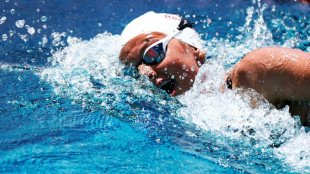
-
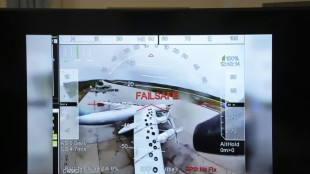 NATO learns as Ukraine's 'creativity' changes battlefield
NATO learns as Ukraine's 'creativity' changes battlefield
-
Thunder rumble to 123-107 win over Pacers to level NBA Finals
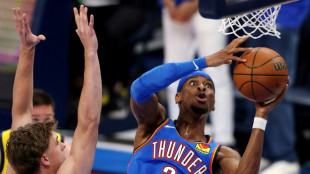
-
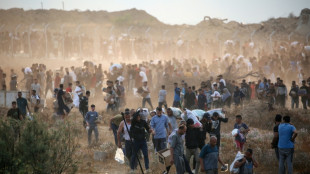 Israel says Gaza-bound activist boat carrying Greta Thunberg redirected
Israel says Gaza-bound activist boat carrying Greta Thunberg redirected
-
Chinese consumer prices continue to fall as US trade talks loom
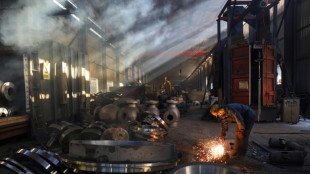
-
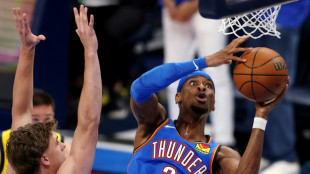 Thunder power past Pacers to level NBA Finals
Thunder power past Pacers to level NBA Finals
-
Asian markets rally ahead of latest China-US trade talks
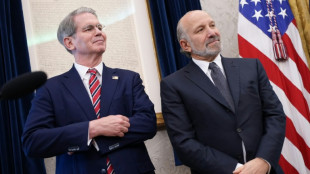
-
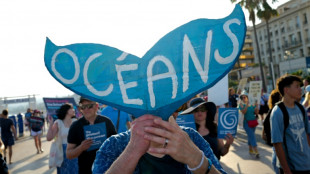 UN summit to tackle 'emergency' in world's oceans
UN summit to tackle 'emergency' in world's oceans
-
Alexandre de Moraes: Brazilian judge in showdown with far-right
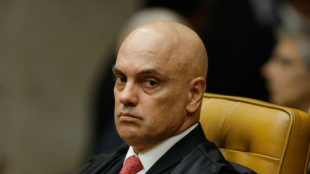
-
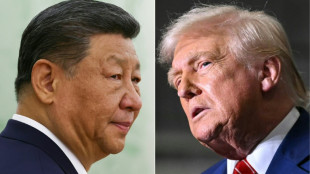 US, China seek to extend trade truce with London talks
US, China seek to extend trade truce with London talks
-
Empire Metals Limited Announces Exceptional High-Purity TiO2 Product Achieved

-
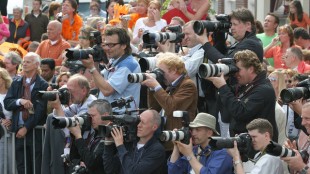 Angle PLC Announces Posting of Annual Report and Notice of AGM
Angle PLC Announces Posting of Annual Report and Notice of AGM
-
Guardian Metal Joins Critical Minerals Forum

-
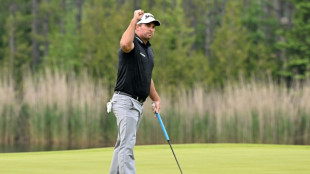 Fox beats Burns on fourth playoff hole to win PGA Canadian Open
Fox beats Burns on fourth playoff hole to win PGA Canadian Open
-
Nations League victors Portugal toast Ronaldo's 'winner mentality'
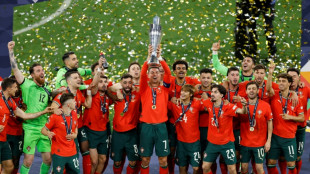
-
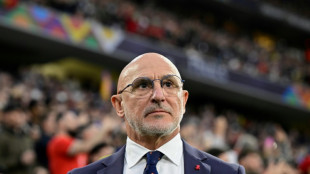 Spain focused on World Cup after defeat, says coach
Spain focused on World Cup after defeat, says coach
-
New Zealand Rugby chief Robinson quits
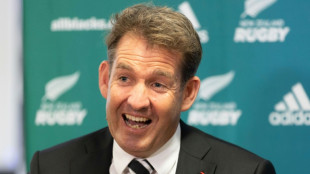
-
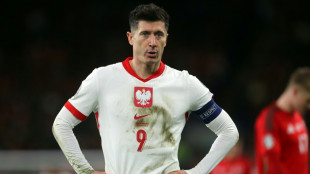 Lewandowski to boycott national team under current coach
Lewandowski to boycott national team under current coach
-
Portugal beat Spain on penalties to win Nations League
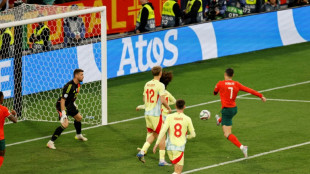
-
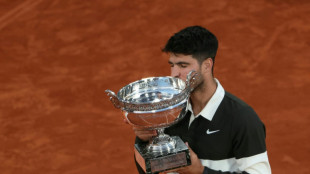 Alcaraz puts French Open miracle down to 'real champions' mindset
Alcaraz puts French Open miracle down to 'real champions' mindset
-
Kupcho ends LPGA title drought with Shoprite Classic crown
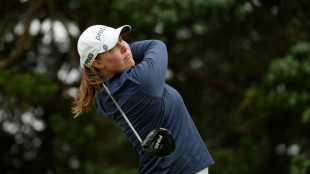
-
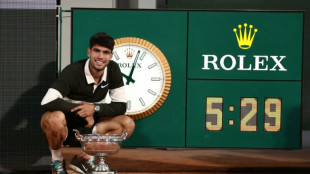 Alcaraz stuns Sinner in all-time great French Open final
Alcaraz stuns Sinner in all-time great French Open final
-
'This one hurts': Sinner wants to forget painful French Open final loss
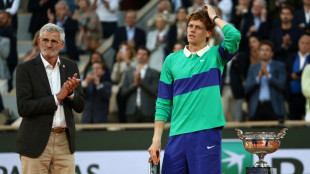
-
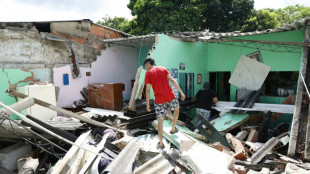 Powerful 6.3 magnitude quake shakes central Colombia, damaging buildings
Powerful 6.3 magnitude quake shakes central Colombia, damaging buildings
-
'They could be here in two days': Ukrainian town braces for Russian advance
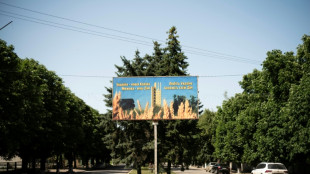
-
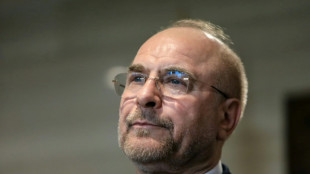 Iran says no sanctions relief in US nuclear proposal
Iran says no sanctions relief in US nuclear proposal
-
Chile's Niemann wins in Virginia for fourth LIV Golf title this year
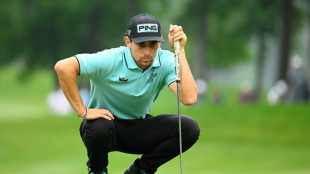
-
 LA unrest marks latest clash of US presidents, states over National Guard
LA unrest marks latest clash of US presidents, states over National Guard
-
Alcaraz outlasts Sinner in all-time great French Open final
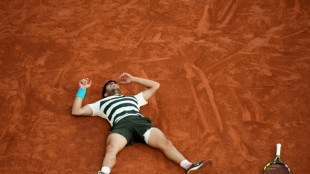
-
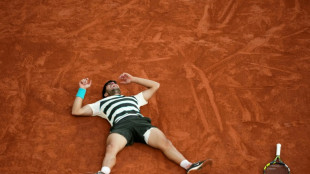 Alcaraz saves three match points to beat Sinner to French Open title
Alcaraz saves three match points to beat Sinner to French Open title
-
Wales boss Bellamy has no fear of Belgium after 'best year'
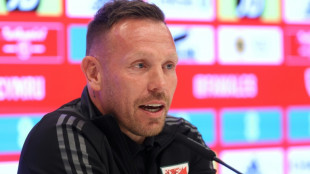
-
 Microsoft unveils ROG Xbox Ally handheld video game devices
Microsoft unveils ROG Xbox Ally handheld video game devices
-
Chinese man defies demolition orders to build madcap rural home


NATO learns as Ukraine's 'creativity' changes battlefield
Ukraine's "creativity", including its massive "Spider's web" drone attack deep inside Russia, holds profound lessons for Western militaries, the top NATO commander overseeing battlefield innovation told AFP.
"What the Ukrainians did in Russia was a Trojan horse -- and the trojan horse was thousands of years ago," French Admiral Pierre Vandier, NATO's Supreme Allied Commander Transformation, said in an interview.
"Today, we see this kind of tactic being reinvented by technical and industrial creativity."
Vandier said the operation showed how crucial innovation and adaptation were for victory, as modern warfare changes at lightning speed.
"It was a real coup."
"We are entering a dynamic era where armies must rely on both major planning but also adaptive planning," the navy commander said.
"We will witness continuous innovation where, week by week, month by month or year by year, we will be able to invent things we hadn't anticipated."
- 'Must act quickly' -
Faced with the Russian threat, NATO this week adopted new objectives for its defence capabilities to ensure it will be able to repel Moscow.
But Western intelligence agencies have warned that the Kremlin is reconstituting its forces at a pace far outstripping NATO and could be ready to attack the alliance in as little as four years.
"Time is truly a crucial parameter. We must act quickly," Vandier said.
The admiral, who previously commanded France's flagship Charles De Gaulle aircraft carrier, said NATO needed to amass the forces to dissuade any adversary from trying an attack.
"When you say 'I'm defending myself', you have the weapons to defend. When you say you deter, you have the weapons to deter," he said.
"That's what should prevent war -- making the adversary think: "Tomorrow morning, I won't win."
NATO countries under pressure from US President Donald Trump are expected to agree a major increase in their defence spending target at a summit in The Hague this month.
That should see a dramatic surge in spending on military hardware.
But if cheap Ukrainian drones can inflict billions of dollars in damage on Russian bombers, is it still worth investing in vastly expensive systems?
"No-one in the military sphere will tell you that we can do without what we'll call traditional equipment," Vandier said.
"However, we are certain we need new equipment to complement it."
Officials say that over 70 percent of battlefield casualties in Ukraine are caused by drones.
But while drones are indispensable in modern warfare, they are not omnipotent.
"Today, you won't cross the Atlantic with a 10-meter-long (33-foot-long) drone. You won't easily locate submarines with such tools," Vandier said.
"If they accompany your large platforms, you'll be able to achieve much better results at much lower costs."
- Integrating new technologies -
The admiral, who works out of NATO's US base in Norfolk, Virginia, said the major challenge was "integrating new technologies and new combat methods, based on what we've witnessed in Ukraine".
NATO and Ukraine have established a centre in Poland designed to help the alliance learn lessons from Russia's invasion of its neighbour.
Artificial Intelligence and robotics are also increasingly having an impact and are set to help reshape the battlefield.
"All modern armies will have piloted and non-piloted capabilities," Vandier said.
"It's much more efficient to deliver ammunition with a ground robot than with a squad of soldiers who could face a 155-millimeter (six-inch) shell."
This transformation of military capabilities within the alliance, which NATO aims to expand by at least 30 percent over coming years, will come at a significant cost, estimated in hundreds of billions of euros (dollars).
Vandier insisted that while the financial effort was "substantial" it was "fully realistic".
"Today, we have all the tools. We have the engineering. We have the expertise. We have the technology. So, we need to get started," he said.
D.Kaufman--AMWN
